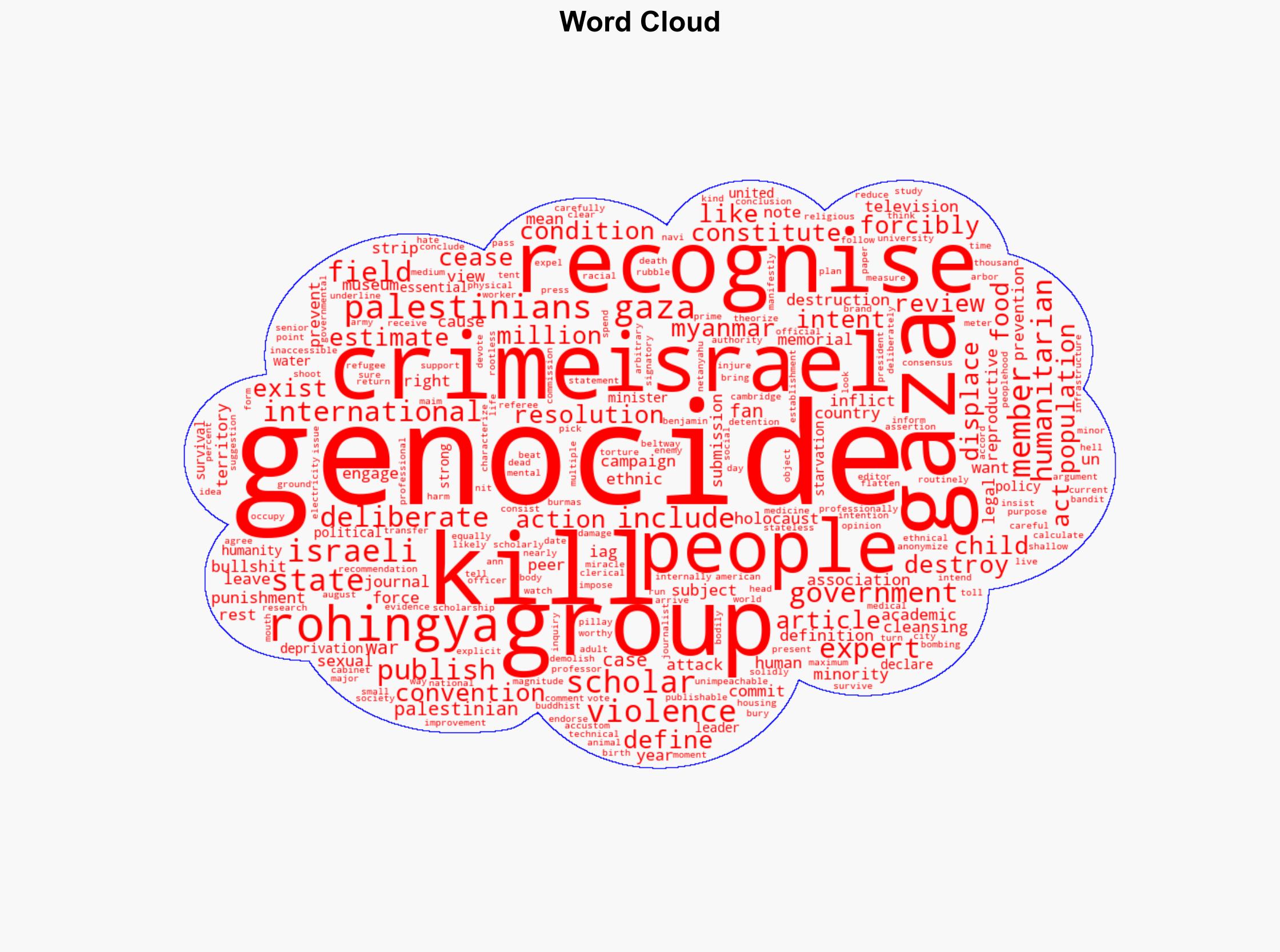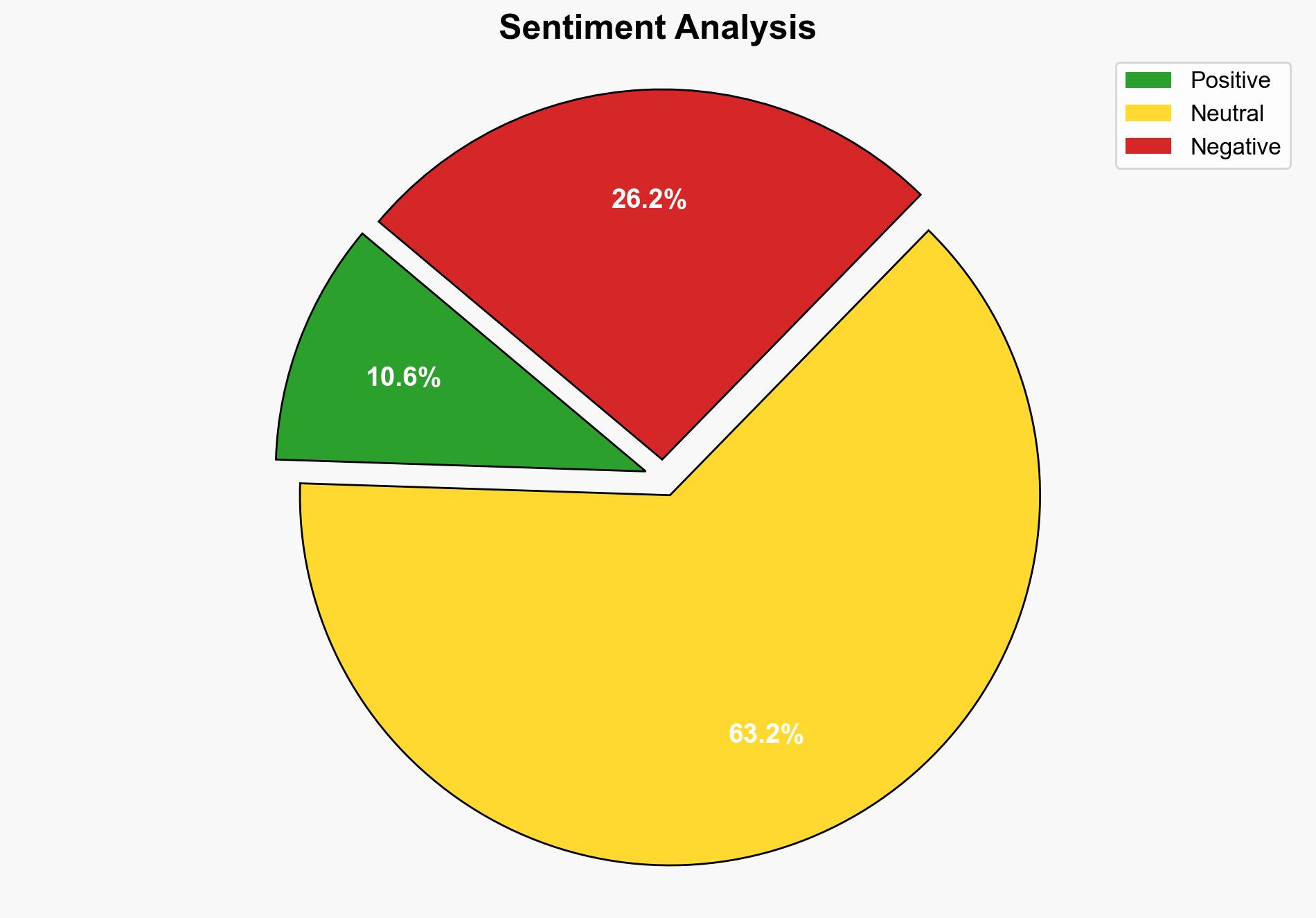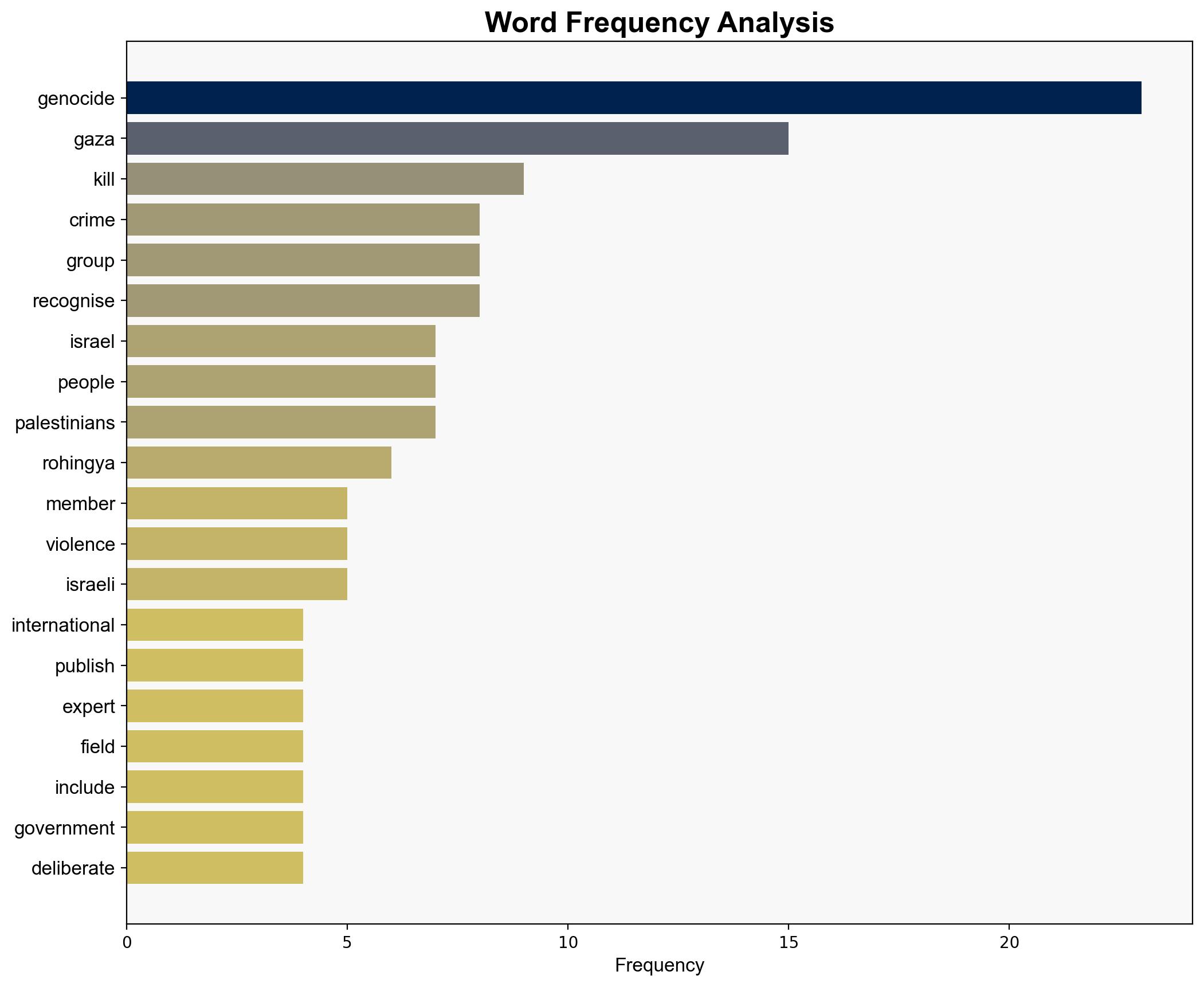Genocide Scholars Israel is Committing a Genocide in Gaza and we Should Know – Juancole.com
Published on: 2025-09-06
Intelligence Report: Genocide Scholars Israel is Committing a Genocide in Gaza and we Should Know – Juancole.com
1. BLUF (Bottom Line Up Front)
The most supported hypothesis is that the actions of Israel in Gaza align with the definition of genocide as per the International Convention on the Prevention and Punishment of the Crime of Genocide. This is based on scholarly consensus and documented actions that fit the legal criteria. Confidence in this assessment is moderate due to potential biases and the politically charged nature of the subject. Recommended action includes diplomatic engagement and further independent investigations to corroborate or refute these claims.
2. Competing Hypotheses
1. **Hypothesis A**: Israel’s actions in Gaza constitute genocide as defined by international law. This is supported by scholarly consensus and documented evidence of actions intended to destroy, in whole or in part, a national, ethnical, racial, or religious group.
2. **Hypothesis B**: Israel’s actions, while severe, do not meet the legal definition of genocide but rather constitute a series of aggressive military operations with significant humanitarian consequences. This interpretation suggests that the intent to destroy a group is not present or provable.
3. Key Assumptions and Red Flags
– **Assumptions**: Hypothesis A assumes that the documented actions and statements by Israeli leaders demonstrate intent to destroy the Palestinian group in Gaza. Hypothesis B assumes that the actions are primarily military in nature without genocidal intent.
– **Red Flags**: The highly politicized nature of the source and potential bias in the selection of evidence. The lack of direct evidence of intent, which is crucial for a genocide determination, is a significant gap.
– **Blind Spots**: Potential underreporting or misreporting of events due to restricted access to the region for independent observers.
4. Implications and Strategic Risks
– **Patterns**: Continued escalation could lead to broader regional instability, drawing in neighboring countries and non-state actors.
– **Cascading Threats**: Increased international condemnation could lead to sanctions or other diplomatic actions against Israel, affecting regional alliances.
– **Potential Escalation**: Prolonged conflict may lead to increased radicalization and recruitment by extremist groups, posing a global terrorism threat.
– **Dimensions**: The economic impact on Gaza and Israel, potential cyber warfare, and psychological effects on populations involved.
5. Recommendations and Outlook
- Engage in diplomatic dialogue with international bodies to address and investigate the claims of genocide.
- Encourage independent investigations by neutral parties to establish a comprehensive understanding of the situation.
- Scenario-based projections:
- **Best Case**: De-escalation through diplomatic intervention and humanitarian aid.
- **Worst Case**: Escalation into a broader regional conflict with significant loss of life and economic disruption.
- **Most Likely**: Continued conflict with intermittent ceasefires and ongoing humanitarian crises.
6. Key Individuals and Entities
– International Association of Genocide Scholars
– Israeli governmental leaders
– Palestinian leadership in Gaza
7. Thematic Tags
national security threats, human rights, international law, regional conflict




